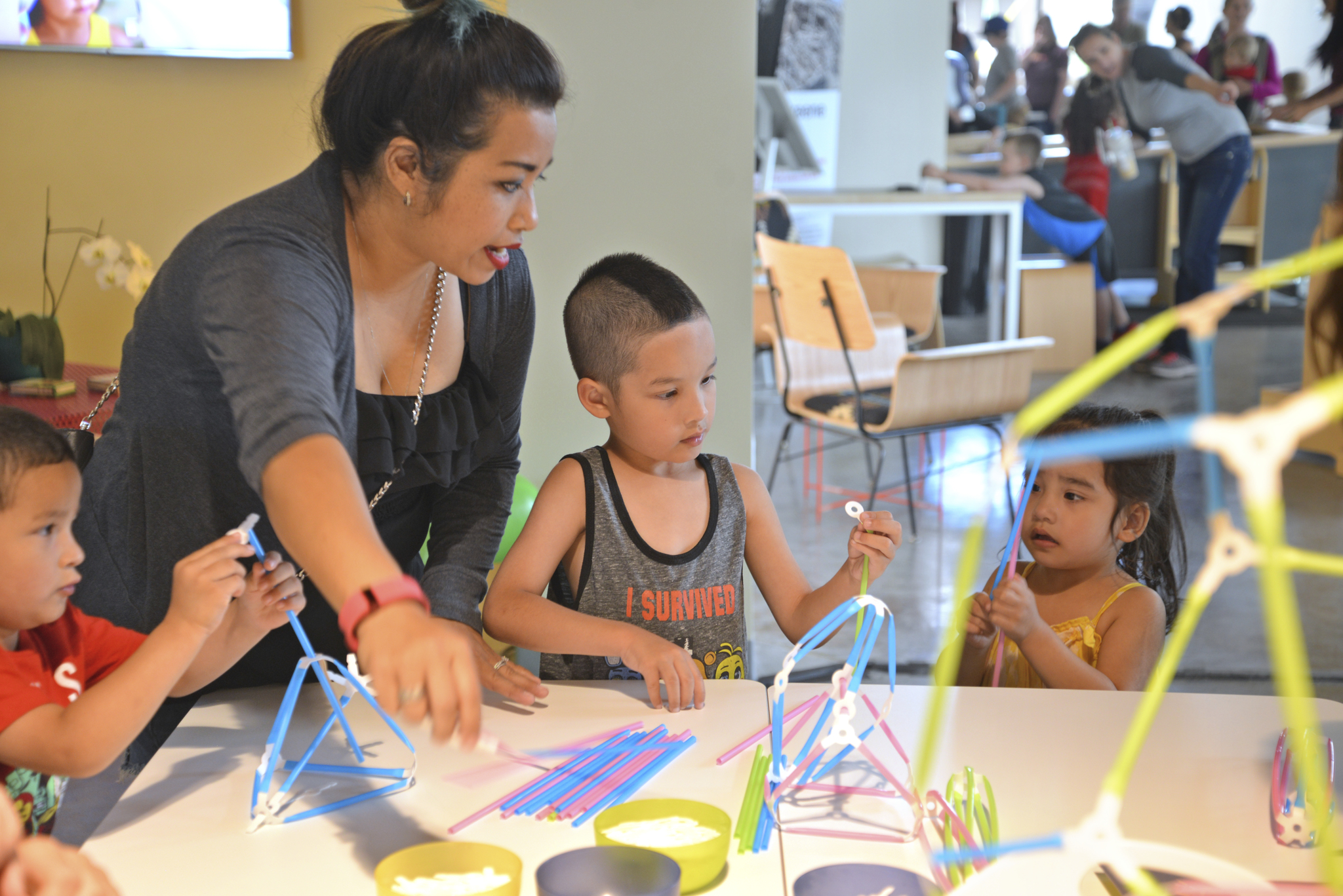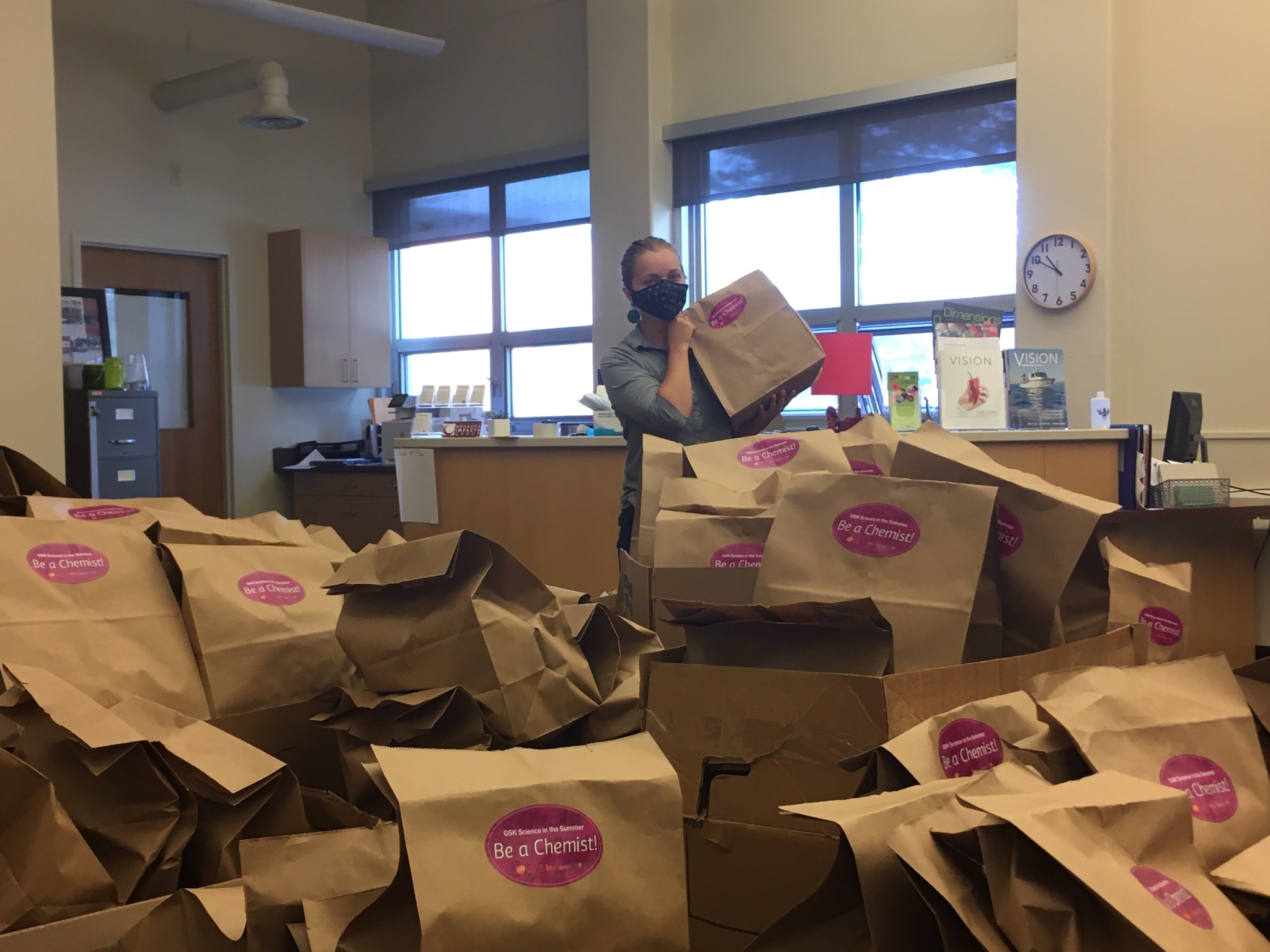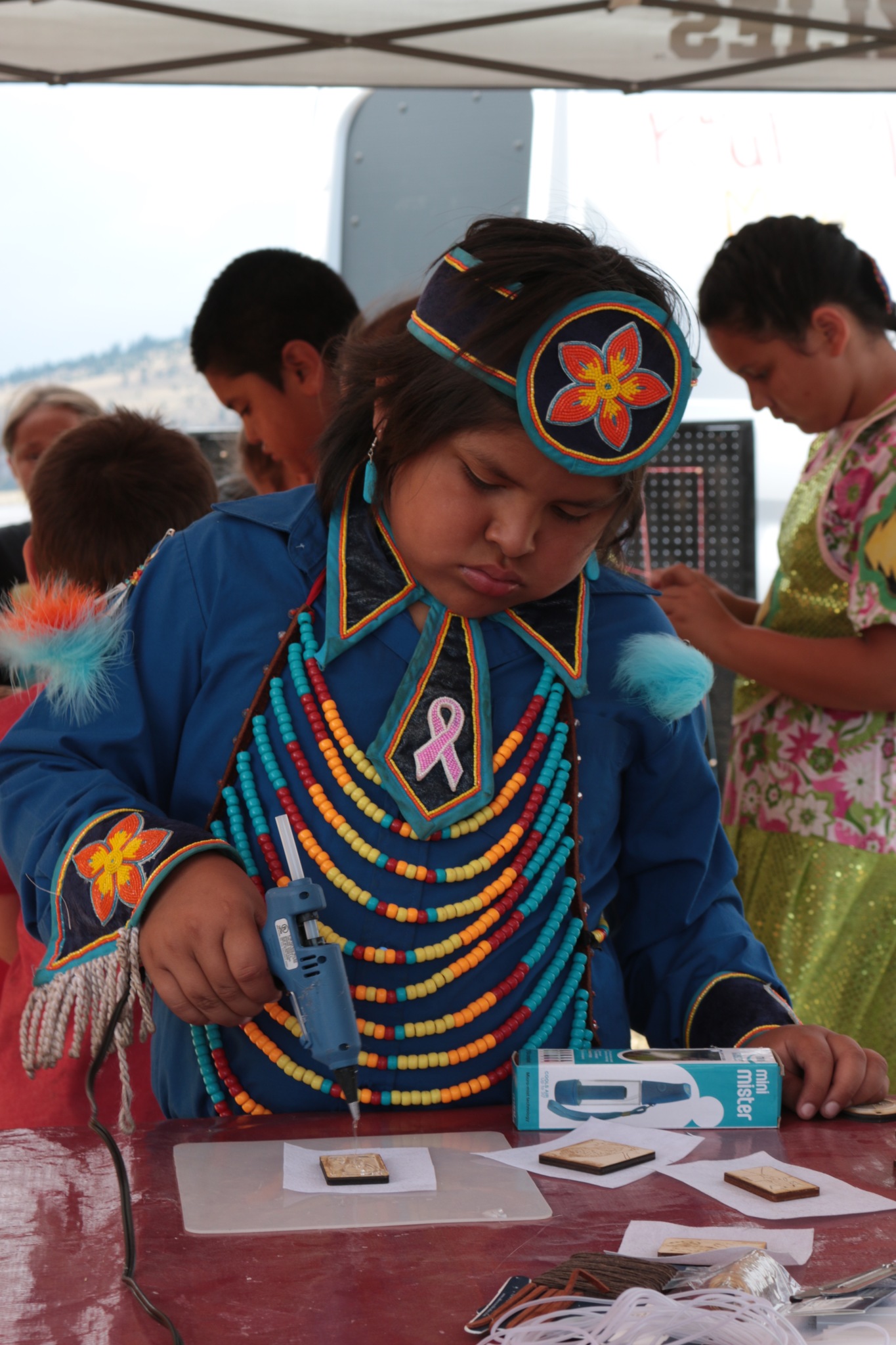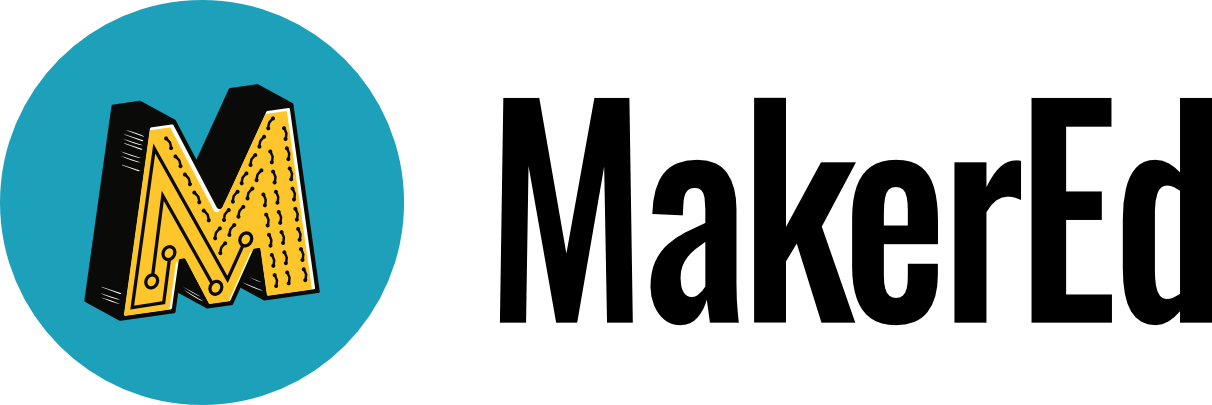This article is part of a series of interviews with our partner organizations in the Making Spaces program. Read more Hub Highlights here.
Tell us a little bit about your organization and the learners that you serve!

The spectrUM Discovery Area began as a mobile science tent in 2007 and has blossomed into a year-round science museum and educational organization that serves communities across Montana. Our official mission: The University of Montana spectrUM Discovery Area promotes a culture of learning and discovery for all Montanans, with the goal of inspiring K-12 students to pursue higher education and possibly careers in STEM fields. Given the rural and tribal demographics of our state, it is important to be able to connect with students in-person and with culturally relevant information. To that effect, we engage with advisory groups in each community in which we offer long-term programming — our SciNation advisory group is situated on the Flathead Indian Reservation, and comprises local leaders from a variety of communities and the Confederated Salish and Kootenai Tribes. We also extensively work with schools, libraries and other organizations in the Bitterroot Valley under the advisement of our Bitterroot STEAM Advisory Group. Within Missoula, we operate a science museum that is open to the public in collaboration with the Missoula Public Library and other community partners, and EmPower Place — an educational space that is housed within and operated in coordination with the Missoula Food Bank. For more information on each of these collaboratives and the work that they do, see the following links to articles co-written with members of the advisory groups or local community members.
- EmPower Place: https://read.nxtbook.com/astc/dimensions/january_february_2020/breaking_down_silos_and_movin.html
- Bitterroot Valley Learning Ecosystem: https://www.nsta.org/connected-science-learning/connected-science-learning-october-december-2019/design-elements-rural
- The Kwul ‘I’tkin Maker Truck on the Flathead Reservation: https://www.nsta.org/connected-science-learning/connected-science-learning-july-september-2018-0/cocreating
What challenges has your organization faced this year as a result of the COVID-19 pandemic, and how have you adapted?
Boy, has it been a year! In a normal year, spectrUM is open to the public year-round, offers summer science camps, travels to a number of different communities with our Science on Wheels program and holds events at the Arlee Celebration and Pow-Wow — none of which were possible this year. We offered limited in-person summer camps, which were a big win, and hosted some of our Summer of Science events as normal in the Bitterroot Valley. Both of these looked very different in our efforts to comply with all state, local, and UM regulations regarding in-person events. A large change is the continued closure of our museum to the public. We moved into the Missoula Public Library with Missoula Community Access Television, Families First Missoula and the UM Living Lab, and had planned to open in June of 2020. This building is still closed to the public for community safety, so we have shifted our programming to include science kits (some of which we distribute through the library’s curbside service in collaboration with our other building partners), virtual programming like videos and virtual field trips, among other adaptations.

The biggest shift for us has been to adapt from in-person, hands-on programs – normally the heart of our work – to virtual events and science kits. To date, we’ve distributed over 6,000 science kits and are ramping up production this fall to distribute several thousand more.
Why did you originally join the Making Spaces program?

We have been collaborating with rural schools for many years to embed the making and tinkering ethos and activities into their curriculum. Making Spaces offered the opportunity to empower schools and individual teachers to take the lead with making, further some existing relationships and curate new ones. Instead of the “spectrUM show” with all our bells and whistles arriving once a month, teachers themselves can feel confident to inspire kids with engaging, hands-on standards-based activities and come up with their own ideas to integrate into their curriculum.
The ongoing ability to connect with people from around the country is incredible and inspiring. We can see how everyone is adapting and just trying their best to figure out how to navigate all that’s been thrown at us this year. Not only is everyone surviving, but we are moving towards thriving… what better way to demonstrate the need for critical thinking skills than in the middle of a pandemic, when so much of the work has previously relied on in-person connection. We can lead kids, schools, teachers, community leaders in reframing how we can connect meaningfully.
How has participating in Making Spaces has helped your organization achieve its goals?
As indicated above, it’s helpful and refreshing to see what other organizations around the country have been up to and how they have adapted and shifted to serve their audiences through this challenging time. These relationships as well as the tools provided by Maker Ed and the Children’s Museum of Pittsburgh are helpful in thinking about how we can continue to push forward this educational effort in a new educational landscape. As to our organization’s role in learning, it’s more vital than ever that we support teachers in their efforts to inspire and empower students to shape the world around them, and continue to educate the public about science and critical thinking. In our previous initiatives with regards to making and tinkering, we sort of made it up as we went along, so it’s nice to have the robust pedagogical resources and ideas curated by Maker Ed and CMP to further our practices as educators, and bounce these ideas off other organizations around the country.
Tell us about a recent “win” or success you’ve had!
With all that has happened this year, the high demand for take-home science kits and activities is a huge win! It has allowed us to continue to connect with our audience and in some cases, expand our reach to new audiences across the state. Our funding sources for multiple projects have been understanding and flexible in allowing us to shift these funds from the planned in-person programs to the generation of new hands-on activities that we turn into kits and distribute through our existing partnerships. It is highly energizing to see kids be able to pick up a fun activity through the Missoula Food Bank or a free meals program through their school, and to be able to send stressed out teachers an activity they can facilitate with their kids that is fun and engaging and educational, but also saves them a bit of time with planning and prep.
Another “win” is the overwhelming support we received for our annual Big Night fundraiser. We normally hold it in the spring and in-person, but shifted to an online format and held it in October. All of our regular supporters helped to fund our Science for All Scholarship program that supports bringing our work to families and communities that don’t have the resources to participate in these programs. At a time when so many are struggling, seeing the continued support for these programs is inspiring!
Are there other makers, organizations, and/or educators in your community whose work you’d like to celebrate?
We regularly collaborate with so many organizations it’s genuinely difficult to choose! We are in the throes of finalizing our move into the Missoula Public Library along with a number of other partners. The library has been so gracious, understanding, and flexible during what would have been a challenging shift in a normal year, they certainly deserve a shout out! In addition, they have been a great partner and collaborator in coming up with ways that we can all work together to serve our community even though our physical doors are closed.
Making Spaces is a 30-month professional learning and capacity building program designed to support local leadership around maker education and build the foundation for lasting, embedded change in pedagogy, community, and culture.
Learn More About spectrUM Discovery Area
spectrUM Discovery Area is Missoula’s hands-on science center dedicated to inspiring a culture of learning and discovery for all.

Website: https://spectrum.umt.edu/
Location: Missoula, MT (USA)
Social Media: Instagram

Leave a Reply